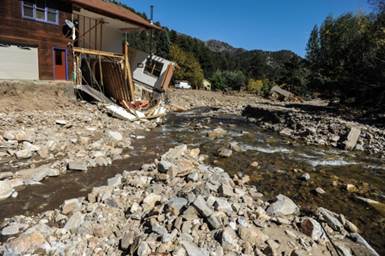Post-Disaster Needs Assessment (PDNA)

Disclaimer: Copyright infringement not intended.
Context
- Post-Disaster Needs Assessment (PDNA) is being done simultaneously in eight states- Assam, Himachal Pradesh, Gujarat, Karnataka, Jharkhand, Maharashtra, Odisha and Meghalaya.
- PDNA in India was first adopted during the Kerala floods of 2018 and again during the cyclone in Odisha in 2019.
PDNA
- The Post-Disaster Needs Assessment (PDNA) is an internationally accepted methodology for determining the physical damages, economic losses, and costs of meeting recovery needs after a natural disaster through a government-led process.
- The Post Disaster Needs Assessment, PDNA, is a joint product of the European Union, the World Bank and the United Nations Development Group.
- It has been drawn up as an effort to harmonize post crises assessments, including those associated to disasters triggered by natural hazards.
- It is basically, an international framework for assessing losses and damages in the aftermath of a disaster.
- Compared with an ordinary assessment, the damage to infrastructure and how it impacts the stock of the economy at the macro-economic level is calculated first in a PDNA.
- This includes a calculation of the disaster’s impact on Gross Domestic Product, the balance of payment and fiscal budget,” he said. Secondly, how this affects the flow of revenue to multiple sectors is evaluated.
- For example, the number of farmers’ income affected per damaged acre of land and the livelihoods lost.




1.png)
